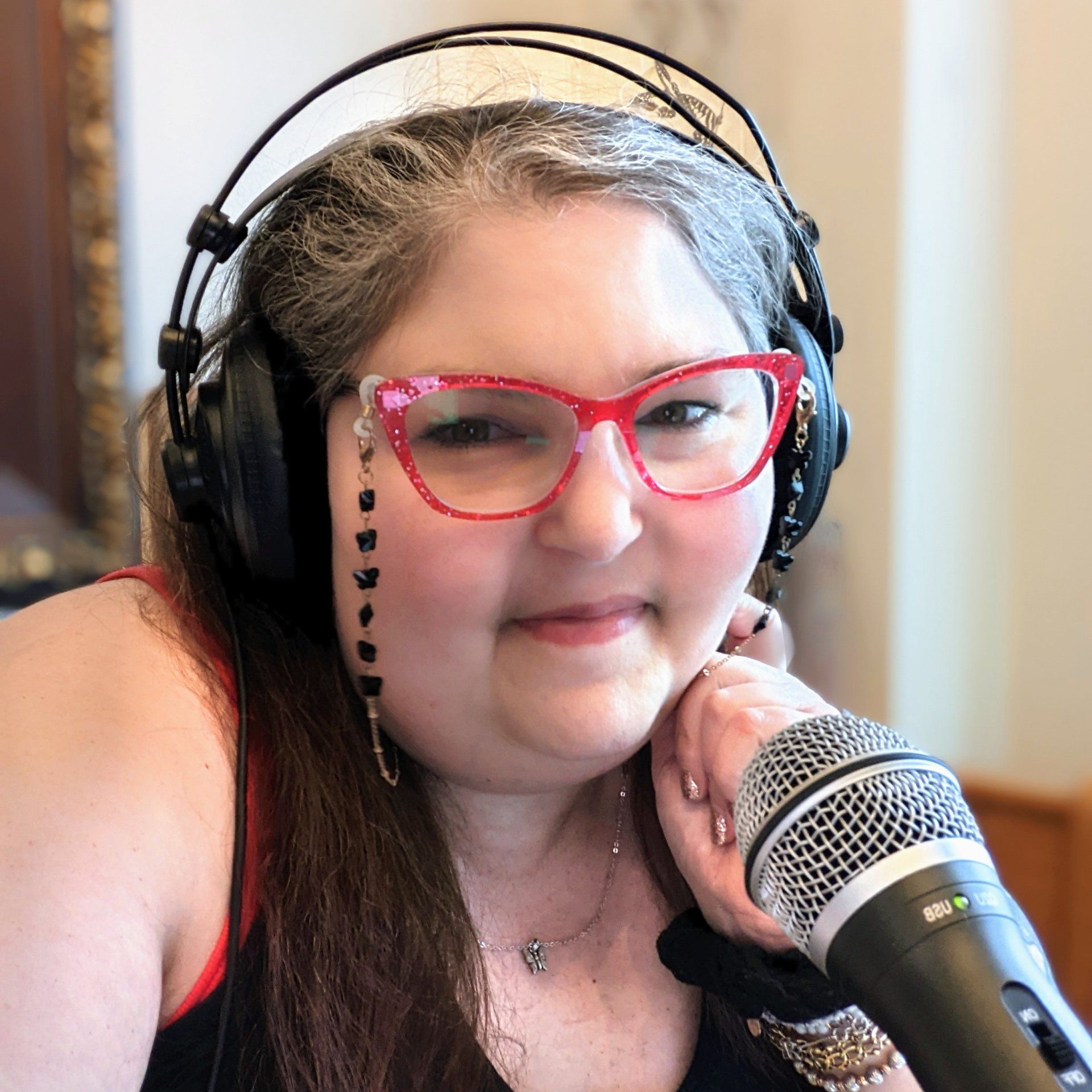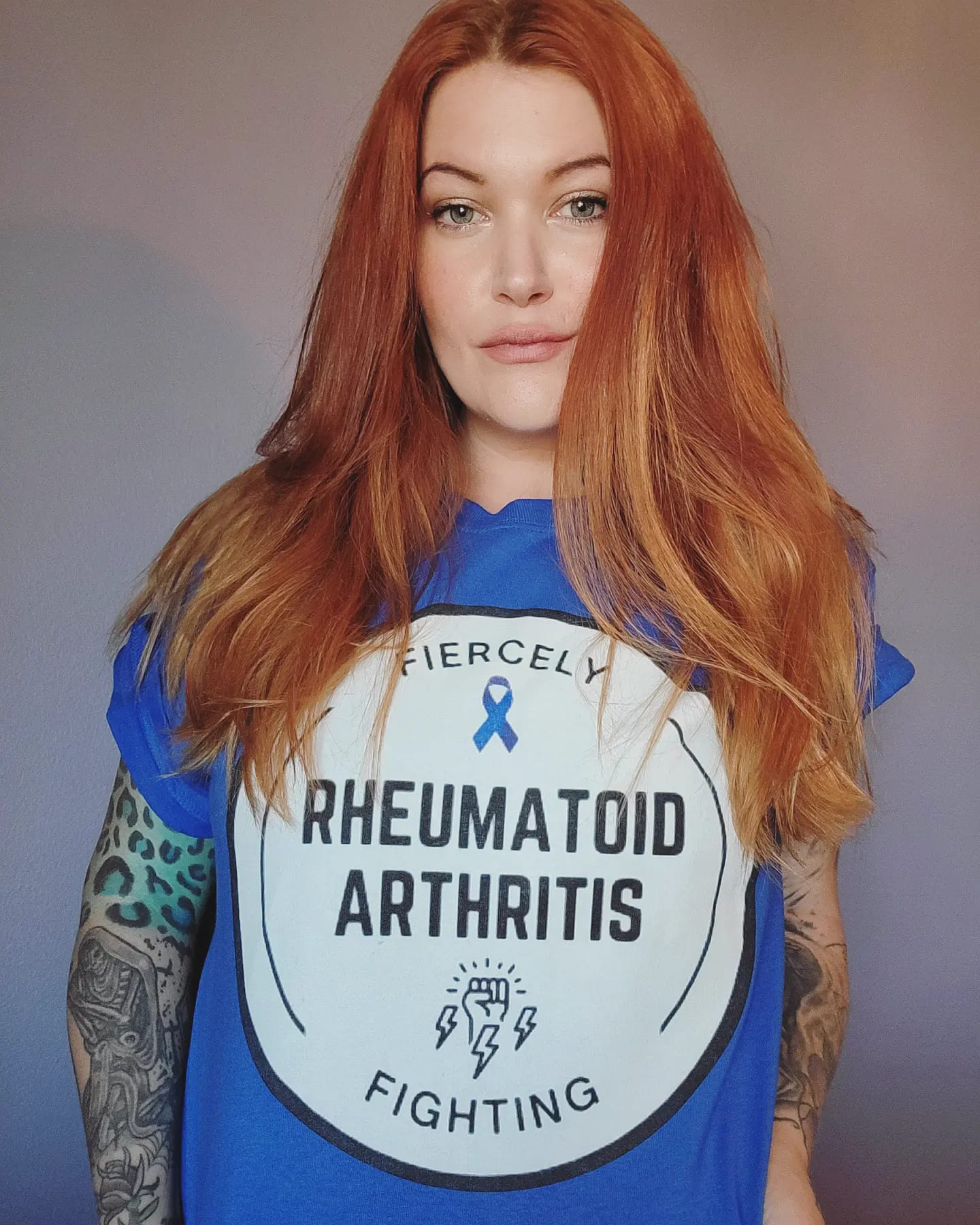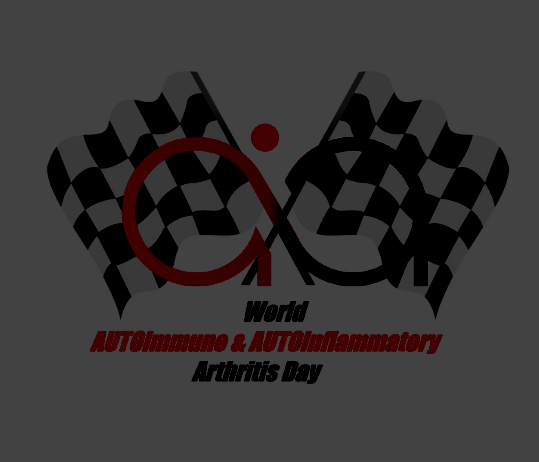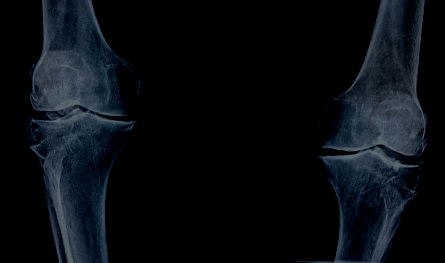“Arthritis” Awareness - It’s Complicated!
AiArthritis Voices 360 Main, Full Episode 73
Air Date: May 1, 2022
In this revisit to the table (Step 5 in our problem-solving process), Tiffany, Katie, Effie, Eileen, and Kerry discuss the many layers around the word “arthritis” including: 1) Misunderstandings around the word that can lead to delays in diagnosis, family and friend judgements, and the different type associated with “AUTO” diseases; and 2) Complexities that exist when trying to identify the AiArthritis from other potential comorbidities (Osteoarthritis, bursitis, enthesitis) and how clarity about this could help with detection, access to the right treatments, and overall better health outcomes.
This conversation takes many turns, all which address issues identified from lived patient experience. Why is differentiating arthritis types important? How many of us referenced family history to expedite diagnosis? How does public, family, and even doctor misunderstanding of our diseases play into diagnosis and exploring potential comorbidities? How accurate is the literature in regards to arthritis prevalence in comparison to what patients report to be true? They even started brainstorming the development of a new tool that could help the public, patients, and health providers better understand the layers of our diseases as well improve communication and overall disease journeys.
Now it’s YOUR turn to weigh in! There’s a lot to talk about, join us ‘at the table’ so, together, we can change the stories of tomorrow!
LISTEN TO THE FULL EPISODE THEN BE SURE TO TAKE A SEAT AT THE TABLE BY JOINING THE CONVERSATION!
(Scroll down the page to learn how!)
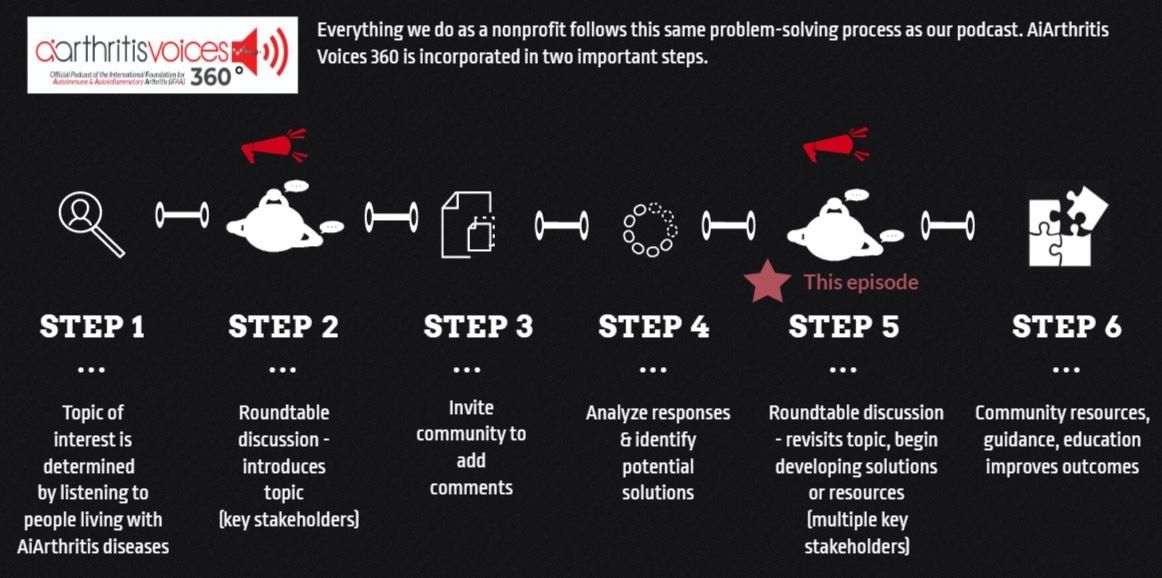
All our main 1st Sunday of the month episodes are either an initial "put the topic on the table" episode (Step 2 in our organization's 6-step problem solving process) or a "revisit to the table" episode, where we build on a past show because we have moved forward in developing help, tools, or projects around the issue (Step 5 in our organization's 6-step process).
After each show airs we spin off the conversation into many discussions over various formats, which we now call #360its (new in 2022)!
Show Notes:
- 00:53 Tiffany (CEO, non-radiographic axial spondylitis) introduces the show and co-hosts, Katie (Programs & Communications Manager, rheumatoid arthritis), Eileen (“Chronic Eileen” rheumatoid arthritis), Effie (“Rising Above RA”, rheumatoid arthritis), and Kerry (“Float Like a Buttahfly”, sarcoidosis).
- 3:13 Tiffany officially welcomes Elieen and Kerry as the newest recurring Co-Hosts!
- 3:37 Explains a new addition to the show - the “360its!”, where any topic or comment from the episode is eligible to spin off into different conversations in any communication format (facebook live, twitter,
- 4:37 Topic is around the word arthritis, as a Step 5 (revisit to the table) issue, because in the US it’s Arthritis Awareness Month and May 20th is World AUTOimmune & AUTOinflammatory Arthritis Day
- 6:35 Co-hosts start the conversation by answering the question, “Why do YOU think the type of arthritis associated with our diseases - and differentiating it from other types - is so important?” All co-hosts share their stories and perspectives.
- 11:17 In the stories shared, the co-hosts outline a journey from “What’s wrong with me?” to “Misunderstandings” to “public education” and “doctor education” and “overlap of types of arthritis (also Osteoarthritis) or other comorbidities.” If we (patients, public, families, doctors) better understood arthritis and the types we could improve detection, referrals, diagnosis and, in turn, improve quality of life, increase rates of remission, and lessen unnecessary disability. This can lead to better overall healthcare and improved costs for healthcare systems.
- 12:52 Tiffany opens the conversation to discuss anyone’s experience with relatives having our diseases. Did anyone say, “Did you have a history of autoimmune/autoinflammatory disease in your family and, if so, did anyone say to you when figuring out what was going on with you, ‘Hey, this person has XYZ, maybe you have something in that family?” They continue discussing this and determine in their cases the connection between family history and detection/diagnosis was not common. This is an opportunity to discuss further because family history and communication about it could expedite diagnosis.
- 17:18 Kerry puts this perspective on the table - Not all families talk about things like illness, so in those cases knowing family history is hard. But given we know AiArthritis diseases are part genetic, this could be a key factor that could either lead to quicker diagnosis, or prolong diagnosis.
- 18:16 Kerry - Talking about the statement “It’s all in your head” - “Once I had something visible - rash on my legs, swelling - I could say ‘I’m not making this up!” Bloodwork was fairly normal except a positive test for autoimmune thyroid, which led to a sign of diagnosis. But it took the visible plus some type of autoimmune direction in bloodwork to get there.
- Most agree, they only realized other family members had something similar after diagnosis. Could this be in part also because it’s not understood by families that ANY of out 100+ “AUTO” diseases counts as family history?
- Tiffany explains the importance also of knowing family history, as newer research is moving towards prevention - or at least catching the disease very early - based on certain biomarkers + known environmental triggers + family history.
- 21: 12 Conversation continues about family history when it comes to the doctor visit (not asked). Often this leads back to the patient trying to push testing and googling what they have.
- 22:37 Group starts discussing delay in diagnosis journeys, including overlap of symptoms and the arthritic component, and how important the right diagnosis matters.
- A lot of delay in diagnosis for Kerry came from the doctors not understanding so self advocacy became necessary to help them figure it out.
- When you have a rare disease, less knowledge is often present and, therefore, more self advocacy necessary.
- 28:48 Effie revisits the topic of family history and how culture and heritage can impact conversation (“We don’t talk about family illness.”). Or, in her case, as immigrants, a lot wasn’t documented. This has, in part, encouraged her to start sharing her story to help others have those ah-ha moments.
- 31:11 There are different kinds of arthritis and some of us have more than one, which can lead to confusion in diagnosis (“You’re too young to have arthritis”, “You’re too old to have RA”) and family misunderstandings (“oh I have that too, it’s not that bad”). They discuss why it’s important for patients to know which type they have - or if they have more than one type. Also, how do we differentiate the systemic systems (part of our disease or comorbidity?)
- How does it overlap or is it separate? Is there a way to treat one differently than another and, if so, what should I know? How do I identify where my pain is coming from and what am I doing to trigger this pain - did my meds stop working or is this something new? Also, since our diseases are systemic and affect organs, too - that plays into this as well.
- 39:05 This is a Step 5 episode, which means we have discussed these topics enough over the last year, including in this episode, to be at a point where we can head into Step 6 - which is creating a solution. In this case, a resource to help with identifying AUTO + Arthritis (and potential comorbidities) so we can improve detection, diagnosis, and disease management. Things to consider in developing this tool:
- Name your pain. What kind of pain do I have? (joint, enthesitis, non-joint, fibro pain, bursitis pain?) Where is it located? (Symptom chart)
- What disease do I have? How can this resource be used to share with doctor?
- Make it patient-led, then doctors review.
- Potential comorbidities
- Include building vocabulary and considerate of families/juveniles
- 42:50 Group discusses why this tool is also important - often doctors will not connect the dots on their own. Kerry gives an example of a doctor considering pituitary gland involvement because, “That could cover many varied issues.” It’s THAT line of thinking, “What could cover many varied issues?” that doctors need to consider.
- 44:04 “Those with sarcoidosis are thought to have lung involvement so if that’s missing as a first symptom it may be missed.”
- The prevalence of arthritis, and what doctors believe is the correct percentage, may differ from patient-reported prevalence. They give examples of Sarcoidosis. It's thought that only 30% have arthritis, but Kerry hasn’t met one person without it. Recently in Still’s Disease (which includes systemic JIA), research has shown about 25% of patients do not have arthritis - especially as a first symptom. Yet the diagnosis triangle for Still’s taught to doctors is look for arthritis, rash, high fevers.
- Is arthritis part of the disease or a comorbidity?
- 49:45 Katie mentions pain evolves in perception and simply getting used to it over time (pain is normal). How does this play into pain reporting? How does measuring pain and personal tolerance and mindset play into this?
- 55:25 What if the arthritis isn’t so bad and it’s the AUTO features that dominate. How can we communicate this? The group also discusses the importance of not eliminating arthritis as a clinical component altogether if it is or was part of your disease. (It’s important for our tool. Is it earlier in their disease, later, a later comorbidity/OA developing?)
- 59:05 Tiffany wraps up the show, starting by inviting the audience to weigh in on the tool we started to brainstorm about in this episode. You can submit your ideas at info@aiarthritis.org, via messenger on social media @IFAiArthritis, social media posts about it.
- 1:01 Kerry, “Float Like a Buttahfly” can be found on Twitter and Instagram @ButtahflyK and on Facebook Float Like a Buttahfly; Effie Instagram and Twitter @RisingAboveRA and on YouTube RA and Myself, blog: RisingAboveRA.com; Eileen, “Chronic Eileen” can google this name and also writes for CreakyJoints, Healthline, and Arthritis Research Canada.
- 1:02:40 You can find AiArthritis at @IFAiArthritis on social media or on the web at aiarthritis.org/talkshow. While there please Tip the Team by giving a donation so we can continue providing this amazing resource!
- Find all the episodes at our website at www.aiarthritis.org/talkshow
- Also, if you want to help us continue offering this program, please consider a donation, because your support makes this show possible!
- Find us on all social media channels at @IFAiArthritis where you can message us to have a seat at the table or email us at podcast@aiarthritis.org.
360its!
After this initial topic of the complexities of "arthritis" awareness was 'put on the table' for the first time in April 2022, we opened the topic up for others to start weighing in. This is called a #360it. 360it's can spin off into any direction, so the conversation continues and more voices are included in any solutions we work on.
#360it Spin Off Issue: Why is "arthritis" so complicated and how can we overcome this barrier to increase understanding and respect for AiArthritis diseases.
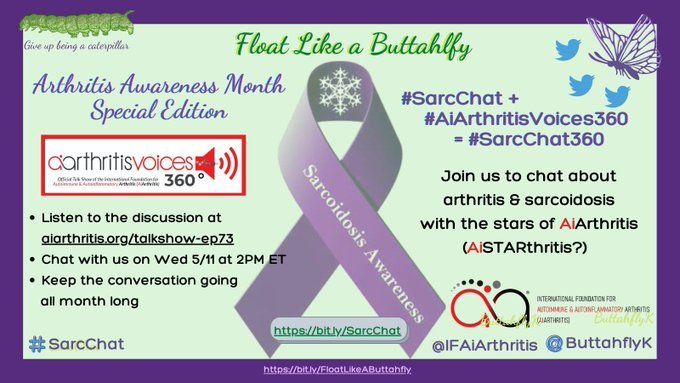
Spinning off of this episode is the #SarcChat360
Hosted every month on Twitter by Kerr Wong's @buttahflyk the May #SarcChat featured question inspired by this Talk Show episode:
- @IFAiArthritis: It wasn’t on your initial list, but you added #sarcoidosis to Additional Diseases with #AiArthritis. Can you tell us when & why you made that change?
- Has your #arthritis been diagnosed as part of #sarcoidosis or a different/separate condition? What condition(s)?
- @IFAiArthritis: How is #arthritis from #sarcoidosis different from "arthritis" that we usually think of?
- How would you describe your symptoms to someone wanting to understand you better?
- Have you ever considered (or participated in) a clinical trial? What would make you lean one way or the other?
- Does anyone else in your family have #sarcoidosis or #arthritis? Did you know about them before you were diagnosed?
For more search for #SarcChat360 on Twitter and join in on the conversation yourself! If you aren't on Twitter, comment on our Talk Show post (on Facebook, Instagram, and LinkedIn), OR you can email us with your thoughts at info@aiarthritis.org
Don't forget to read Kerry's column about this: "The Importance of Asking Questions About Sarcoidosis and Arthritis"
Inspired to take action and help our community raise awareness about our diseases?
Get involved in World #AiArthritisDay
Stay tuned... more 360it's coming your way!
In the meantime, ANY issues you have with accessing your therapies (pharma or non-pharma), falls under this category, because legislation and government often regulate this. Submit your issues today using our RANT page. Who knows - it may become the next 360it!
Pull up your seat at the table
Now it's YOUR TURN to join the conversation!
What do you think about this episode?
We want to know what you think! By continuing the conversation with your opinions and perspectives - we all get a better understanding of the problems facing our community. Better yet, through these conversations we can start working and developing solutions.
We mean it when say 360. Not only do we want your input anytime and anywhere, but we also are eager to see where the conversation will take us. So please, "pull up a seat at the table" and let's start talking!
Email us at podcast@aiarthritis.org, message us on social media (find us by searching for @IFAiArthritis)
Continue the conversation in our own AiArthritis Voices 360 Talk Show Group!
Pull up a seat and join the conversation on the topic from today and past episodes. You may even get an opportunity to talk directly with the co-hosts and any episode guests!
The
AiArthritis Voices Program
Our AiArthritis Voices 360 Talk Show is just a piece of larger program - the AiArthritis Voices Program.
AiArthritis Voices is our program where people living with AiArthritis diseases and other stakeholders who we need 'at the table' to solve problems that impact education, advocacy, and research sign up to have a voice in our initiatives.
If you want to get more involved, and see more of the opportunities we have for you (and all stakeholders) please check out the
AiArthritis Voices Program. Unite with others around the world to talk, learn, and connect.
Your Co-Hosts & Guests: Who is at the table this episode?
Tiffany Westrich-Robertson
Tiffany is the CEO at International Foundation for AiArthritis and uses her professional expertise in mind-mapping and problem solving to help others, like her, who live with AiArthritis diseases work in unison to identify and solve unresolved community issues. For the last several years, she has continued her education in research, including becoming a professional focus group moderator, and translated this experience at our organization to develop award-winning, innovative projects that are taking patient engagement to next levels.
Tiffany has served on several advisory boards, including those to advance patient voices in policy, clinical trials, and precision medicine. In addition to reviewing grants at PCORI and for the Department of Defense, she was the sole patient grant reviewer for the National Institute of Arthritis and Musculoskeletal and Skin diseases from 2015-2018. She currently participates as a Patient Research Partner for OMERACT (Outcome Measures in Rheumatology), co-leads our organizations' international effort to advance patient voices in rheumatology research (the ACTion Council) and has dedicated her professional career to developing other patients to utilize their voices to impact the future of millions.
- Facebook: @tiffanyAiArthritis
- Twitter: @tiffwrobertson
- LinkedIn: @tiffanywestrichrobertson
Effie Koliopoulos
Effie Koliopoulos is a freelance health writer, storyteller, content creator, and arthritis advocate based in Chicago, IL. She has a B.A. in journalism, public relations, and screenwriting. She’s currently working on children’s picture books and other projects. Follow her along:
Website(s): https://risingabovera.com/ and https://keepingitrealwitharthritisbook.com/
● Facebook: https://www.facebook.com/risingabovera
● Instagram: https://www.instagram.com/risingabovera/
● Twitter: https://twitter.com/RisingAboveRa
● LinkedIn: https://www.linkedin.com/in/effiekoliopoulos/
● YouTube: https://www.youtube.com/c/RAandMyself/about
Katie Simons
Diagnosed with Juvenile Rheumatoid Arthritis (now called Juvenile Idiopathic Arthritis) at age 12 and found her home at
AiArthritis as Senior Program & Communications Manager. She earned a Masters of Public Administration, nonprofit management concentration, from Oakland University in Rochester, Michigan.
Kerry Wong
After too many years with doctors who either didn't believe her or couldn't figure things out, Kerry was eventually diagnosed with Fibromyalgia, Sarcoidosis, Small Fiber Neuropathy, Rheumatoid Arthritis, and Sjögren's Syndrome (to name a few). As these conditions took their toll and she became less physically able, Kerry became empowered to use her voice to advocate for herself and for patients like her. Her primary goals are to help other chronic illness warriors know they are not alone in their experience and to help those who care about these warriors to get a better understanding of what that experience entails. Kerry currently volunteers as New York State Advocacy Chair and Platinum Ambassador with Arthritis Foundation, and Patient Ambassador/Peer Mentor with Foundation for Sarcoidosis Research. She has also advocated with the American College of Rheumatology, Support Fibromyalgia Network, and Rare Disease Legislative Advocates, and assisted on numerous projects with International Foundation for Autoimmune & Autoinflammatory Arthritis. . Kerry does all she can to support the arthritis, sarcoidosis, chronic illness, and rare disease communities. She has shared her patient experience in speaking engagements across the country and virtually, and hosts a monthly sarcoidosis Twitter Chat (#SarcChat). Most recently, she has become a columnist with Sarcoidosis News, sharing her experience and insights, inviting others to Float Like a Buttahfly with her.
● Website: https://bit.ly/FloatLikeAButtahfly
● Facebook: https://www.facebook.com/floatlikeabuttahfly
● Instagram: @buttahflyk
● Twitter: @buttahflyk
● LinkedIn: https://www.linkedin.com/in/kerrylwong/
Eileen Davidson
Eileen Davidson is a rheumatoid arthritis patient advocate from Vancouver Canada. She volunteers with the Arthritis Research Canada patient advisory board and the Canadian Institute of Health Research - Institute of Musculoskeletal Health and Arthritis patient engagement research ambassador, among others. When not advocating she is writing about her experience with arthritis through Creaky Joints, Healthline, Chronic Eileen or can be found being a mom to her son Jacob.
● Twitter: @ChronicEileen
Love the show? Help us make sure we stay on the air by making a donation.
Your contribution helps us continue the work we do every day to improve the lives of millions worldwide.












